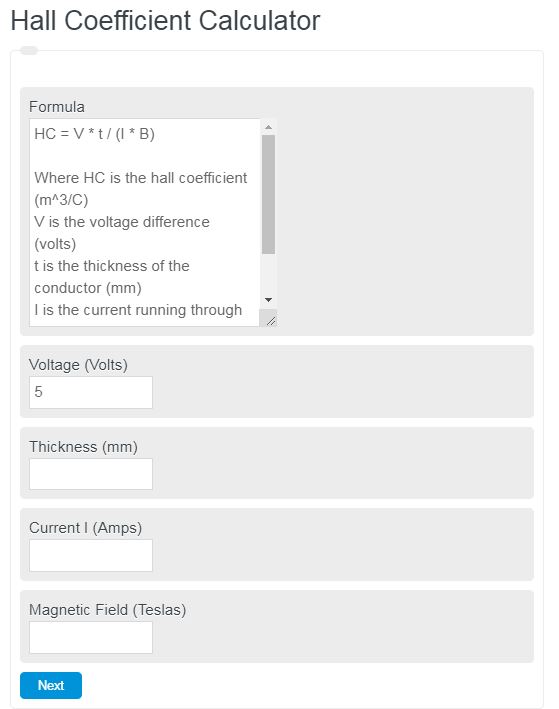Enter the voltage, thickness, current, and magnetic field into the calculator below to determine the hall coefficient of a conductor.
- All Electrical Calculators
- Ohm’s Law Calculator
- Coulomb’s Law Calculator
- Electric Field Calculator
- Conductance Calculator
- Hall Voltage Calculator
- Magnetic Energy Calculator
Hall Coefficient Formula
The following equation can be used to calculate the hall coefficient.
HC = V * t / (I * B)
- Where HC is the hall coefficient (m^3/C)
- V is the voltage difference (volts)
- t is the thickness of the conductor (mm)
- I is the current running through the conductor (Amps)
- B is the magnetic field observed’ (Teslas (T))
The most important aspect of the hall effect is that it allows you to find the sign of the charge carriers. Whether that be positive or negative. This can show whether the charge is being carried entirely by electrons or if some of that charge is being carried by positive holes.
Hall Effect Definition
The Hall Effect is the appearance of a voltage difference due to a magnetic field.
How to calculate the Hall Coefficient?
How to calculate hall coefficient.
- First, determine the voltage difference.
Measure the voltage difference.
- Next, determine the thickness of the conductor.
Measure the total thickness of the conductor.
- Next, determine the current.
Measure the current running through the conductor.
- Next, determine the magnetic field.
Measure the magnetic field strength.
- Finally, calculate the hall coefficient.
Calculate the hall coefficient using the equation above.
FAQ
The hall effect describes the appearance of a voltage across a conductor due to a magnetic field.

